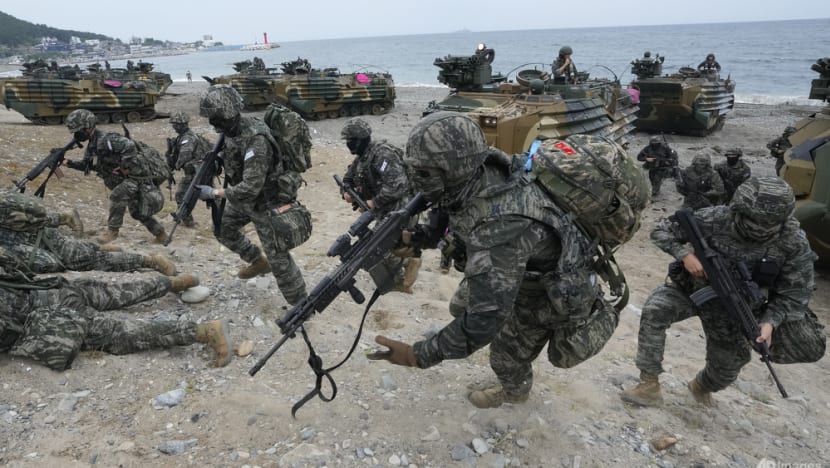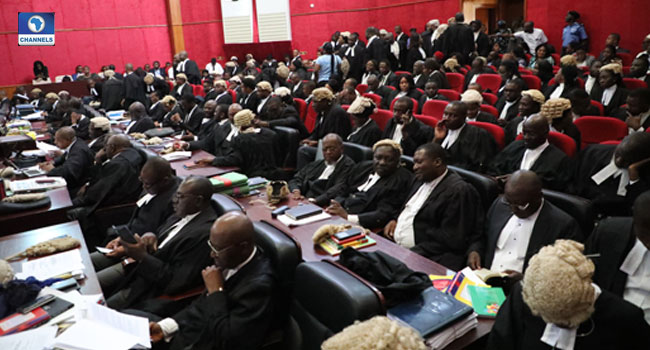On Sept. 23, 1st Lt. Sukhbir Toor possibly became the first Marine to lawfully wear a turban in a Marine Corps uniform.
The Marine Corps granted Toor the ability to wear his turban, uncut hair and a beard in uniform, in accordance with his Sikh faith, unless he deploys to a combat zone or while he is wearing a dress uniform in a ceremonial unit, The New York Times first reported.
The young Marine and the lawyers who represent him said the accommodations mark progress, but do not go nearly far enough accommodate the Marine in his Sikh faith.
The accommodations he was granted, “effectively amounts to a denial … it’s almost asking someone to compartmentalize their identity,” said Giselle Klapper, his lawyer from the Sikh Coalition advocacy group.
RELATED
:quality(70)/arc-anglerfish-arc2-prod-mco.s3.amazonaws.com/public/R4FJTX4LYZCB7C3KGSRJAFKWYQ.JPG)
After several requests and lawsuits the Army changed policy in 2017 and now allows Sikh soldiers to wear articles of their faith and turbans with minimal restrictions.
Toor, the son of Indian immigrants, joined the Corps in 2017 and is serving as an artillery officer in 3rd Battalion, 11th Marines, at Marine Corps Air-Ground Combat Center Twentynine Palms, California.
The Marine told The New York Times that when he first joined he was willing to cut his hair, shave his beard and wear the traditional Marine Corps covers, believing it was wrong to ask for something from the Marine Corps before he gave anything back.
But when he was selected for promotion to captain in the spring, he decided it was time to ask.
“I finally don’t have to pick which life I want to commit to, my faith or my country,” Toor told the Times. “I can be who I am and honor both sides.”
Sikhs traditionally wear five articles of faith that signify commitment to their religion. The articles include a small wooden comb known as the “kanga,” a small knife or ceremonial sword called “kirpan,” cotton “soldier shorts” or slightly longer underwear called the “kachera,” a small steel bracelet known as a “kara,” along with going without cutting their hair or beard, known as “kesh.”
The turban, or dastaar, over the centuries became closely linked to the Sikh religion. It is in the code of conduct and bears nearly the same amount of importance as the other articles, according to Learn Religions.
In June Lt. Gen. David Ottignon, the head of Manpower and Reserve Affairs wrote a letter granting Toor the ability to wear the turban and unshorn hair, but only in limiting circumstances.
“The real world consequences of the failure of a forward deployed Marine unit, such as the one you lead, could jeopardize the lives of Marines and those relying on them to complete their mission,” the general added. “The Corps cannot experiment with the components of mission accomplishment in forward units without assuming the risk of mission failure.”
Under the initial restrictions Toor was prevented from wearing his articles of faith while he was assigned to units that may deploy on short notice, like 3rd Battalion, 11th Marines, where he currently serves.
“Look, I’m on the ground level with the trigger-pullers every day,” Toor told the Times. “To them, I don’t think it makes a difference. We have men, women, people of all races in my platoon. We all wear green, we all bleed red. My Marines didn’t respect me because of what I had on my head.”
Toor also was banned from wearing a turban or beard in dress uniform in any ceremonial position, arguing it would hurt recruitment along with the Corps’ ability to convince the American people that it was “cohesive group of warriors capable of defending the nation’s interest.”
Toor immediately appealed the decision and received slightly greater accommodations that allowed him to wear a turban and beard while in garrison.
But he says the deployment restrictions and the restrictions on ceremonial units that remained were still unacceptable.
Klapper argued the deployment restrictions might put Toor’s career at risk if the Corps forced him to choose between a deployment and his beard.
She was also appalled by the reasoning by the Marine Corps when it came to ceremonial units.
“We’re saying the reason you can’t serve, or you can’t maintain your religious identity, the reason we have to erase essentially your religious identity is because you are in a public facing role” the lawyer said. “That to me is problematic because in reality it’s not under the law a reasonable argument and it’s also just extremely outdated in my view.”
The Marine Corps has not yet responded to questions about Toor or the branch’s decision to limit his accommodations.
Klapper and the other lawyers representing Toor have since sent a letter to the Marine Corps asking it to reconsider its decision in this case with the hopes that the Corps will either follow the Army’s precedent or at least work with Toor’s representatives to come to an agreeable solution.
But, if the Marine Corps does not come to the bargaining table or accept greater accommodations, the lawyer is prepared to sue the Corps in federal court, she said.
Note: This article have been indexed to our site. We do not claim legitimacy, ownership or copyright of any of the content above. To see the article at original source Click Here












